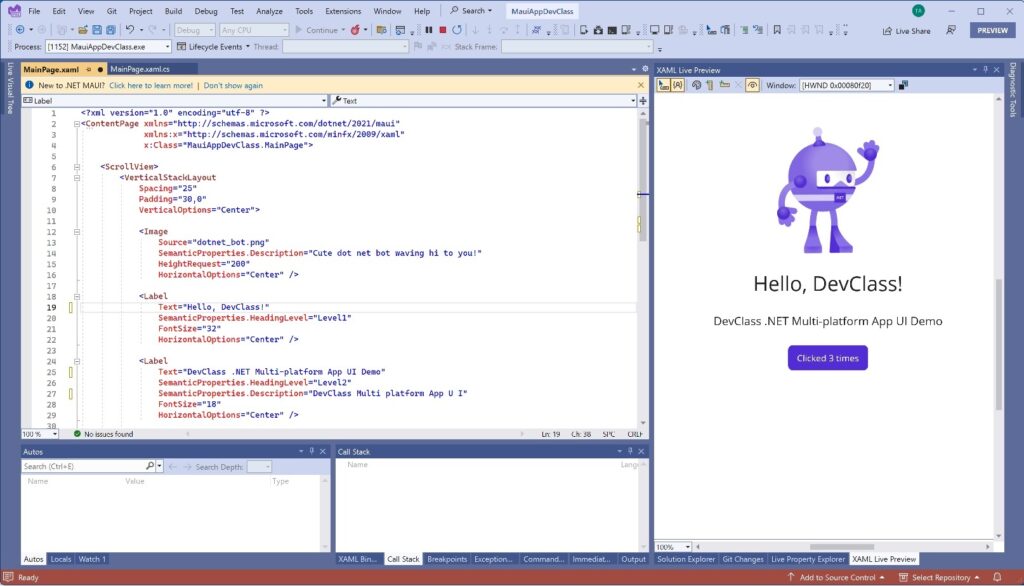
Microsoft has released new updates to Visual Studio, including a stable release of Visual Studio 17.3 for Windows and Mac, and a preview of Visual Studio 2022 17.4 on both platforms.
17.4 is important as it will be a long term servicing release – though in this case “long term” only means 18 months of support. Key new features in 17.3 Windows include the first non-preview release of tooling for MAUI (Multi-platform App UI). MAUI was released in May, and targets iOS, Android, Windows and macOS, but on release had no tooling support in the stable version of Visual Studio on Windows or Mac.

Other new features include Teams Toolkit, and support for Azure Container Apps. Version 17.4 preview will be the first to be generally available as a native Arm64 application.
The new Mac release, 17.3, now includes basic MAUI support though Microsoft still describes it as preview. Senior program manager Jon Galloway posted that “The .NET MAUI tooling is in preview for both Visual Studio for Mac 17.3 and 17.4 Preview 1. In 17.3, there are templates to create .NET MAUI apps, and you can develop and debug applications …however, the .NET MAUI tool support is better in 17.4, and that’s where we’ll be releasing the officially supported MAUI tooling. Since you can install 17.3 and 17.4 Preview side-by-side, we’re recommending 17.4 Previews for MAUI development.”
Developers get a better MAUI experience on Windows than on Mac. There is no visual designer for MAUI XAML but Visual Studio 17.3 Windows includes XAML Live Preview, which lets you see the result of changes in a docked window. This is not available in Visual Studio Mac, though Mac developers do still have XAML Hot Reload which automatically updates a running application.
Microsoft supports two IDEs on the Mac: developer favourite Visual Studio Code, and Visual Studio Mac, the latter intended to be more equivalent to Visual Studio on Windows. The origins of Visual Studio Mac are in Xamarin Studio, created by Xamarin before its acquisition by Microsoft, which was for developing in C# for Android, iOS and macOS. It is therefore disappointing that MAUI, the successor to Xamarin, is now better supported in Visual Studio for Windows – though there is still value in using the Mac version as it is required for building and debugging Apple-platform apps.
Although Microsoft has added new targets to Visual Studio Mac, including ASP.NET Core and JavaScript/TypeScript, it remains a long way behind its Windows cousin. In contrast, VS Code works just as well on Mac as on Windows, and is supported by a huge range of extensions making it more capable than Visual Studio in many ways.
